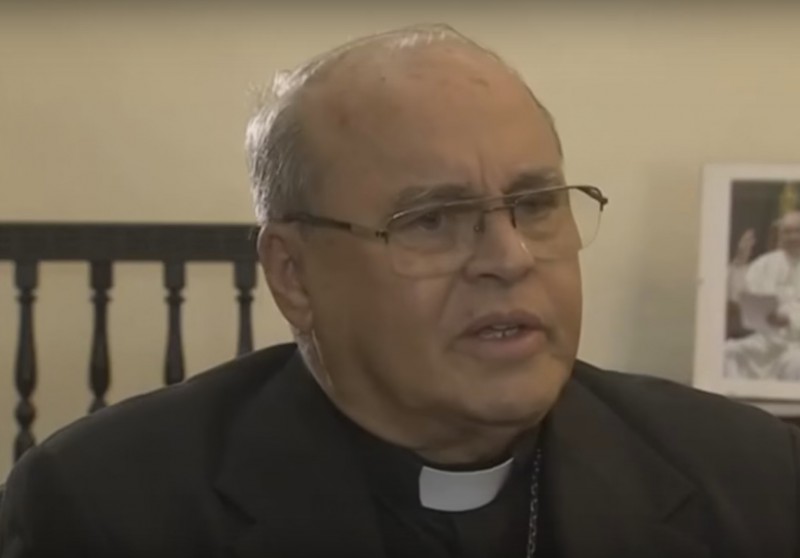
Andes, Blog, Colombia, Latin America: Week in Review
FARC Apologizes for Killing Indigenous Leaders
November 13, 2014 By Staff
Top Story — The FARC, Colombia’s largest rebel group, has issued a statment saying that they “profoundly lament” killing two indigenous Nasa men near the southwestern municipality of Toribío earlier this month. The apology comes after seven FARC rebels were put on trial in a tribal court for the killings on Nov. 9, and five of them given long prison sentences.
The two Nasa men were part of the indigenous guard, the police force in the indigenous territory. According to members of the Nasa community, the guards and rebels got into an argument about removing posters commemorating the late FARC leader Alfonso Cano. The FARC shot the two men, and the remaining guards gave chase and arrested the seven rebels, who are themselves indigenous.
The FARC’s statement, however, contradicts the indigenous account, insisting that the guards attacked first, and that after killing the two men the rebels turned themselves in.
Some 5,000 members of the Nasa community participated in the trial, which handed out prison sentences ranging from 40 to 60 years to five of the rebels, giving the two minors in the group 20 lashes and time in a rehabilitation center. Under Colombian law, indigenous communities are given jurisdiction over their own territories.
The UN condemned the killings as an example of the widespread abuses committed by armed groups in Colombia’s civil conflict. The UN representative to Colombia, however, also condemned the rebels’ trial as lacking in due process. Other critics — including the accused rebels’ family — also say that the men did not receive a fair trial.
The Nasa community takes pride in its community justice system, which it says is a powerful deterrent to potential abuses.
This is not the first time that the community has put rebels on trial. Nasa courts have previously sentenced FARC rebels to public flogging after accusing them of attacking civilians.
The Nasa community has been caught in the middle of the Colombian conflict for years, resulting in a strained relationship with both the FARC and the state. In 2012, the tribe demanded that the Colombian military and the FARC leave their territory, accusing both of killing civilians. The indigenous guard has since driven the military out of some of their posts in addition to confronting and arresting FARC rebels.
The sentencing comes during continuing peace talks between the Colombian government and the FARC, in which the issue of victims’ rights is being discussed. Indigenous groups have demanded greater participation in the peace talks, as they are one of the key groups affected by the country’s decades-long conflict.
Headlines from the Western Hemisphere
North America
- Journalist Francisco Goldman provides an up-to-date analysis for The New Yorker of the protests roiling Mexico over the apparent massacre of 43 college students in Guerrero state.
- The tourism industry of Acapulco, Mexico is preparing to take a big hit as demand for reservations ahead of the upcoming holiday season has plummeted due to the widespread and violent protests.
- Down the highway from Acapulco, protesters also set fire to a local state assembly building and several cars on Wednesday in Guerrero’s capital city, Chilpancingo, as anger over the students’ disappearance shows no sign of abating.
Caribbean
- Cuba defended North Korea at the U.N., as the fellow socialist nation faces a draft resolution that recommends it go before the International Criminal Court for crimes against humanity.
- The Huffington Post looks at a mosaic program that has empowered Haitian youth and revitalized the community of Jacmel, a city devastated by the 2010 earthquake.
- The AP investigates the return of 12 Cuban ballet dancers currently living abroad to their homeland for the 24th International Ballet Festival of Havana, evidence of Cuba’s relaxation of travel and income laws.
Central America
- Honduras’ President Juan Hernández on Wednesday told Reuters that he’d like the U.S. to invest $2 billion a year, or more, to help the Central American country work to slow an ongoing exodus of migrants, many of them children.
- A spokesperson for Nicaragua’s interoceanic canal project announced that a definitive map of the canal will soon be released, as well as a study that investigates the environmental implications of its construction.
Andes
- Colombia’s ambassador to Venezuela said on Wednesday that despite his arrest in Cartagena, a man Venezuelan authorities say masterminded the killing of leftist congressman Robert Serra has no clear connection to the crime.
- Peru’s government on Wednesday signed an agreement with China to work alongside Brazil in constructing a railroad connecting the two South American countries, one of several large infrastructure projects in the region with notable Chinese involvement.
- Colombia’s government should abandon legislation that might allow the military perpetrators of the “false positives” scandal to go free, argued two Human Rights Watch members in a New York Times op-ed.
- A new study shows that Peru’s rainforests can store more carbon than the U.S. produces in an entire year, a notable finding as Peru prepares to host a key UN climate summit in December.
Southern Cone
- Brazil’s currency, the real, dropped for a second straight day Wednesday after President Dilma Rousseff asked the congress to expand the money supply to combat a rising budget deficit.
- Despite some favorable rhetoric, Chilean President Michele Bachelet failed to secure any solid trade or investment commitments on a trip to China that ended Wednesday, despite the Asian country’s increasing involvement in the economies of Latin America.
Image: YouTube
Subscribe to Today in Latin America by Email
< Previous Article






1 Comment
[…] The FARC also issued a statement last week saying that they “profoundly lament” killing two indigenous Nasa men near the southwestern municipality of Toribío earlier this month. […]
Comments are closed.